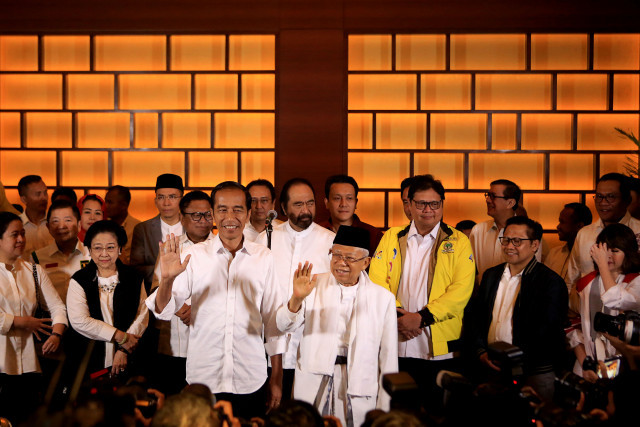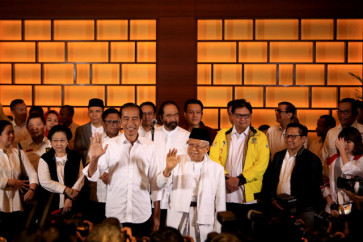Popular Reads
Top Results
Can't find what you're looking for?
View all search resultsPopular Reads
Top Results
Can't find what you're looking for?
View all search resultsMa’ruf factor and Indonesia’s democracy
Measuring the Ma’ruf effect against the reelection of Jokowi is difficult, as it requires clear and complex indicators.
Change text size
Gift Premium Articles
to Anyone
R
ecently, The Jakarta Post published a crucial and timely debate on the Ma’ruf Amin factor in April’s presidential election and its potential effect on Indonesian democracy.
While Ahmad Najib Burhani (May 9) argued that Ma’ruf, a Nahdlatul Ulama (NU) top figure, had failed to boost Jokowi’s electability and potentially degraded Indonesia’s democracy, Azis Anwar Fachrudin (May 18) emphasized the role of Ma’ruf and the NU factor in increasing Jokowi’s share of the vote in East and Central Java.
Furthermore, Azis implied that there was no need to worry about Jokowi’s alliance with the NU, because Indonesia was a Pancasila state, rather than a liberal democratic state, and indeed the alliance was better, when we consider the Indonesian political reality, than Prabowo Subianto’s Islamist-backed coalition.
Emphasizing the “shield” perspective, Azis argued that Ma’ruf’s VP candidacy shouldn’t necessarily be regarded as a move to reap votes but rather as a defensive maneuver that successfully saved Jokowi from losing a huge number of votes, especially in West Java. Ma’ruf’s nomination was also defined as the key factor behind a significant rise in electoral support in East and Central Java, as well as in Yogyakarta and among non-Muslim voters.
Indeed, measuring the Ma’ruf effect against the reelection of Jokowi is difficult, as it requires clear and complex indicators. We need to distinguish between the increase in votes for Jokowi in Central Java as a result of the Ma’ruf factor and as a result of the political consolidation of the Indonesian Democratic Party of Struggle (PDIP), since this province is the party’s traditional stronghold.
Compared with the 2014 election, the map of support for Jokowi has not changed much in Central Java and Yogyakarta this time around. Data from the General Elections Commission (KPU) show that, in 2014, Jokowi-Kalla won in those two provinces with 66.65 percent and 55.81 percent respectively. In 2019, Jokowi-Amin won in both provinces, following nearly the same pattern as the 2014 election.
This suggests that Jokowi still enjoys huge support from voters in those regions, despite the change in VP candidate. The same pattern of votes could also be seen in Jakarta; there was no significant difference between the number of votes cast in the 2014 and 2019 elections.


















